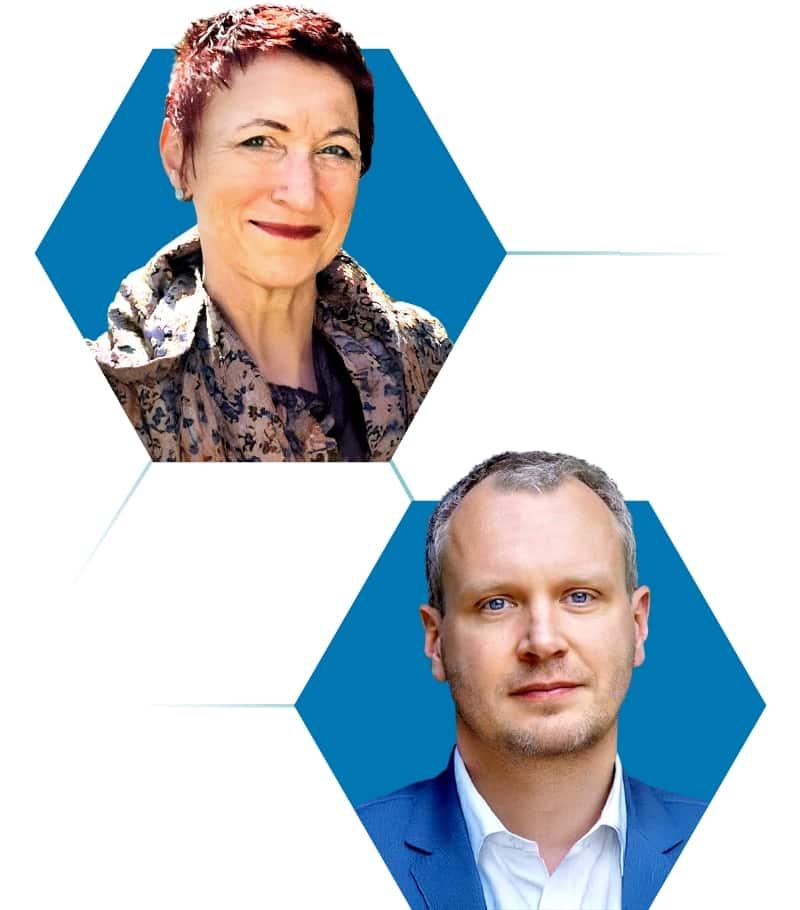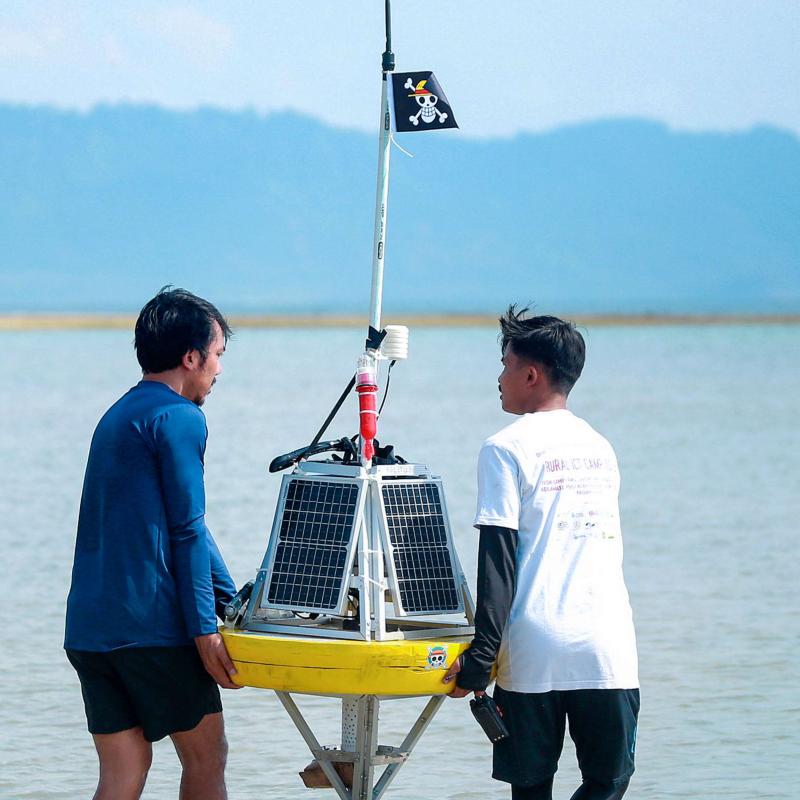Ensuring everyone benefits from AI
GIZ is working on developing and using fair artificial intelligence with partner countries. Petra Zimmermann-Steinhart and Bernd Lakemeier explain what that looks like and how it is helping hundreds of millions of people in Africa and Asia.
Open, transparent, fair and equitable: these are key principles for GIZ when we work on programmes involving artificial intelligence (AI). We believe it offers huge opportunities for international cooperation and achieving the sustainable development goals. But AI can also drive inequality, and if the wrong approach has been taken, it can result in successes fizzling out after the end of a project. That is precisely what we want to prevent by focusing on open AI building blocks and open-source software for digital transformation.
Digitalisation is important for the development of our partner countries, and so we have been working on sustainable solutions on behalf of the German Federal Ministry for Economic Cooperation and Development (BMZ) since as far back as 2019. The cornerstone of these efforts is the FAIR Forward initiative. It puts forward ideas for AI projects, and its work is guided by the motto ‘Artificial Intelligence for All’. We also have a team of specialists at Head Office who advise and support projects so that ideas can be trialled and subsequently scaled up.
AI needs to learn many languages
How will we achieve that? To enable as many people as possible to benefit from AI, the technology first needs to be able to ‘speak’ and ‘understand’ many languages. Conversational AI offers great potential for imparting knowledge. However, it is often available only in English – even though just 1.5 billion of the world’s roughly eight billion people speak English. AI still lacks resources for African and Asian languages, in particular. In recent years, FAIR Forward has therefore worked with partners in countries such as Uganda, Kenya, Rwanda, India and Indonesia to create millions of voice data records in languages such as Kiswahili, Kinyarwanda and Luganda and has made them freely available to all, with a licence permitting distribution. GIZ has thus become a trailblazer in international cooperation in the field of conversational AI in African and Asian languages – together with incredible implementation partners such as the Mozilla Foundation, the Lacuna Fund, Translators without Borders and the Indian Institute of Science (IISc), to name just a few.
Our developments have paved the way for more than 600 million people in Asia and Africa to make use of AI services. For example, they can talk to chatbots to access public services or tap into agricultural expertise. In Kenya, for instance, we have helped to develop a system that enables farmers to better estimate their crop yields. In Peru, we are using artificial intelligence to support state investigators in combating money laundering.

Petra Zimmermann-Steinhart is the Director of GIZ’s Methods, Digital Transformation, Innovation Division.
Bernd Lakemeier is the Director of GIZ’s Economic and Social Development, Digitalisation Division.
Joining forces with atingi, GIZ’s learning platform
FAIR Forward’s cooperation with the online learning platform atingi shows how we are connecting AI with other global digital services. atingi, which was developed by GIZ in 2019, offers a wide range of learning opportunities. The courses on artificial intelligence are particularly successful, with 120,000 people having already completed them online. AI courses are also offered in person, including courses for women. To give an example, women programmers in South Africa are given the opportunity to expand their knowledge of data science and AI. Women who complete the course pass on their knowledge, enabling the South African Weather Service, for example, to produce better forecasts. The staff of government ministries can also educate themselves about AI. After all, governments can use this new technology only if they are clear about what it involves.
Artificial intelligence for climate action
One aspect that will play an even greater role for us in future is the use of AI for climate action. We have already implemented a project in Indonesia to improve forest conservation. Particularly carbon-rich rainforest that is under threat and needs to be conserved can now be identified more accurately using AI. Such forests can then also be included as carbon reservoirs in national climate action plans. This approach has already been extended to India and western Africa.
All of these examples show that GIZ is having an impact, as our AI tools are important building blocks that can be applied to various issues around the world. Of course, there are tech giants with more money and expertise that we cannot quite match. But GIZ is specifically committed to small, specialised, resource-efficient and open AI models. The advantage of this is that we share the AI to encourage the development of markets and innovation at local level. This particularly benefits local companies and NGOs which have exciting, innovative ideas and can access our data.
Ground rules for AI
Artificial intelligence is not intrinsically good, however; it needs ground rules. We have supported several countries in Africa and Asia in developing national AI strategies, and we offer recommendations on regulation to ensure that AI remains fair and does not create new dependencies. The EU has sent a signal by adopting the world’s first comprehensive AI Act in 2024.
Cooperation on AI for the benefit of all
We have achieved a great deal with AI in German development cooperation in recent years. But the pace of progress and change in this field is extremely high. At the same time, artificial intelligence is becoming a geopolitical football, and the global norms for cooperation are crumbling. In this environment, how can we, as a service provider to the German Government, continue to advance fair forms of AI cooperation? First, with clear principles; second, through smart implementation; and third, through investment in global public AI goods as basic building blocks for AI innovation. After all, there is a sharply growing need to use international cooperation on AI for the benefit of all in our partner countries – and in Europe as well.


